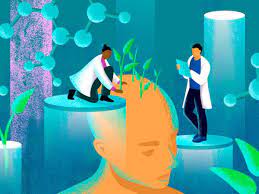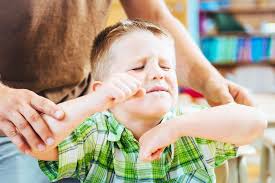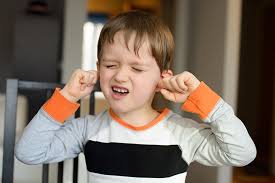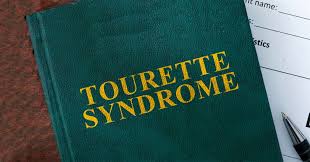Content of the Article
- What is Tourette syndrome?
- What is the cause of Tourette's syndrome?
- What are the risk factors for Tourette's syndrome?
- What are the symptoms of Tourette's syndrome?
- How is Tourette syndrome diagnosed?
- What is the treatment for Tourette's syndrome?
- Nutrition in Tourette's syndrome
- Can Tourette's syndrome be prevented?
- Does Tourette's syndrome go away?
- How to make life easier for a person with Tourette's syndrome?
- What are the complications of Tourette syndrome?
- What is the long-term situation for Tourette's syndrome?
Tourette's syndromeA disorder that causes uncontrollable movements and sounds called tics. a neurological condition and tic disease, tic syndrome or gilles de la tourette syndrome It is known by different names such as
It usually appears in early childhood. Tics can be mild or severe. Medication and therapy help reduce tics.
This disease, which has a different name, was defined by the French Doctor Gerard Gilles de La Tourette in 1985 and was named after the doctor.
Well, what Tourette's disorder?
What is Tourette syndrome?
Tourette's syndromeA neurological disease that affects the brain and nerves. It causes the person to make sudden movements or sounds called tics.
Tics are involuntary, so they cannot be controlled or prevented. It is manifested by motor tics such as shrugging and vocal tics such as throat clearing. Motor tics develop earlier than vocal tics.
Well, What is the cause of Tourette's disorder??
What is the cause of Tourette's syndrome?
Tourette's syndromeThe exact cause is unknown. Genes play a role in the development of the disease and therefore it is genetic. The disease, in which environmental factors are also effective, is a complex disorder that still awaits resolution.
in the brain dopamine and chemicals that transmit nerve impulses (neurotransmitters), such as serotonin, are thought to play a role in the development of the disease.
Well, Who gets Tourette's disease??
What are the risk factors for Tourette's syndrome?
Tourette's syndromeThere are some factors that affect its development. What are these risk factors?
- Gender: Of men tourette syndromeThey are at least three times more likely to develop it than women.
- Genetic: Tourette's syndrome It is passed from parents to their children through genes (inherited).
- prenatal health: Children of mothers who smoke or have health complications during pregnancy Tourette's syndrome at higher risk for Low birth weight also increases the risk.
What are the symptoms of Tourette's syndrome?
Tourette's syndromeThe main symptom is tics. It usually begins between the ages of 5 and 7 and peaks around the age of 12.
Tics are classified as complex or simple tics:
- complex ticsencompasses many movements and muscle groups. E.g; Jumping is a complex motor tic. Repeating certain words or phrases is also a complex vocal tic.
- simple tics, fast, repetitive movements involving only a few muscle groups. A shrug is a simple motor tic. Clearing your throat is simply a vocal tic.
Other engine tics include:
- arm play
- waist bending
- Blinking
- Don't move your head left or right
- Jump
- jaw movements
- distorted facial expressions
Voice tics are:
- Bark
- Grumble
- Do not scream
- Sniffing
- throat clearing
Are tics harmful?
Some tics are harmful, for example; motor tics that cause someone to hit their face.
Tourette's syndromeAs a symptom of this, a vocal tic called coprolalia occurs; this causes the person to speak obscene and abusive speech unintentionally in public.
Well, How is Tourette's syndrome diagnosed?
How is Tourette syndrome diagnosed?
Tourette's syndromeThere is no test that can diagnose it. A history of signs and symptoms is reviewed for diagnosis. Tourette's syndromeThe criteria used to diagnose it are:
- Both motor tics and vocal tics are evaluated, but not necessarily both at the same time.
- Tics occur almost daily or intermittently several times a day for more than a year.
- Tics begin before age 18.
- Tics are not caused by drugs, other substances, or another medical condition.
- Tics change over time in location, frequency, type, complexity, or severity.
Tourette's syndrome Other conditions than can cause both motor and vocal tics. To rule out other causes of tics, the doctor may order blood tests and imaging such as MRI.
Is there a cure for Tourette's syndrome?
What is the treatment for Tourette's syndrome?
Mild tics that do not affect daily activities may not need treatment. But severe tics put the person in trouble at work, at school, or in social situations.
Some tics even lead to self-harm. In these cases, medication or behavioral therapy is used.
Tourette syndrome drug treatment
Medications to help control tics include:
- Medicines that block or reduce dopamine.
- Botulinum (Botox) injections.
- ADHD medications.
- Central adrenergic inhibitors.
- Antidepressants.
- Antiseizure drugs.
Therapy for Tourette's syndrome
- behavioral therapy
- Psychotherapy
- deep brain stimulation (DBS)
Tourette's syndromeTics occur involuntarily and therefore cannot be controlled. But therapy allows to control tics and reduce their negative effects.
Nutrition in Tourette's syndrome
Some researches are carried out within the scope of nutritional treatment of neurological diseases. generally Tourette's syndrome There is no nutritional strategy that can cure tics and tics, but eating certain foods and avoiding others is thought to have a positive effect on the disease.
What to eat in Tourette syndrome?
Foods to avoid
- gluten
- Refined sugar
- Foods with sweeteners and preservatives
Can Tourette's syndrome be prevented?
Tourette's syndromeThere is no such thing as prevention. But early diagnosis and treatment can prevent the condition from worsening.
Does Tourette's syndrome go away?
Tourette's syndrome may improve in adulthood. Although tics increase after a certain age, they may disappear after the age of 19-20, and their severity and frequency may decrease.
How to make life easier for a person with Tourette's syndrome?
Living with Tourette's syndrome especially difficult for children. It will be more difficult for them to carry out their school work and communicate with others because of the illness.
With the support of friends, family members and teachers, children Tourette's syndromecan manage it. These children;
- It should be studied in classes with fewer students.
- He should get personal attention at school.
- They should be given more time to complete their homework.
What are the complications of Tourette syndrome?
People with Tourette's syndrome usually leads a healthy life. However, he experiences behavioral and social difficulties due to tics. Tourette's syndromeConditions associated with it are:
- Attention deficit/hyperactivity disorder (ADHD)
- obsessive-compulsive disorder (OCD)
- autism spectrum disorder
- learning disabilities
- Sleeping disorders
- Depression
- Anxiety disorders
- Pain due to tics, especially headaches
- anger management issues
What is the long-term situation for Tourette's syndrome?
Tourette's syndromehas no cure. The condition usually resolves in adulthood. There may also be chronic cases. Although the condition cannot be resolved in these people, tics are minimized with treatment.
People with Tourette's syndrome lasts a normal life.


















